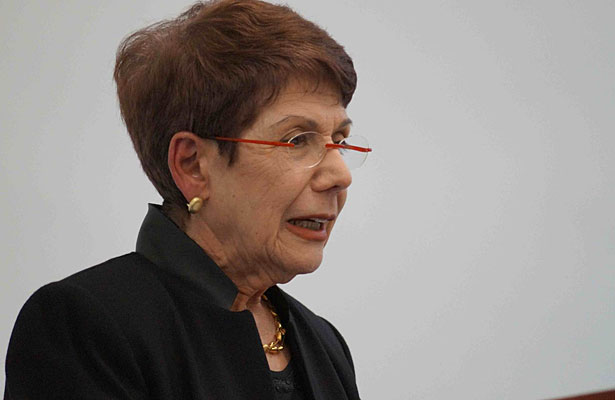"As a man with simple needs - with a modest lifestyle, simple dress and always ready to speak to any man or woman without seeming anxious or without holding back - this is how he made it possible for thousands of citizens to identify with him", explained Professor Anita Shapira in her public lecture as visiting professor at Ludwig-Maximilians-Universität München (LMU) that was entitled "David Ben-Gurion – The Father of Israeli Statehood". Shapira is one of the leading historians on Israel, she taught at Tel Aviv University and still lives in the city. David Ben-Gurion was able to accomplish great things for Israel, becoming the "most important hero of the nation". In her lecture Shapira introduced the most important findings of her current project: a biography of David Ben-Gurion (1886-1973). The life story of the first Israeli Prime Minister is particularly impressive. Compared to the intellectuals, professors and politicians with whom he would later, in his role as politician, debate "ethics, Indian philosophy, the Bible, Plato and Spinoza", Ben-Gurion's origins were modest, Shapira remarked.
The second important project in his life
She explained to the 120 attendees of the LMU event how Ben-Gurion supported the Jews in Palestine after the Second World War as a responsible politician. He started by ordering translations of all major works of world literature into the Hebrew language, thus initiating the development of Jewish culture and self-awareness. He then addressed the second major project of his life, which was to help initiate the founding of the State of Israel in 1948. He liaised with US President Harry Truman and maintained a friendly relationship with Konrad Adenauer. Ben-Gurion distinguished himself by believing that the countries and their leaders which had taken part in the Second World War had changed for the better and could now be trusted to build the enlightened, modern states which have secured our peace to this day.
"It was Ben-Gurion's aim to turn Israel into a shining beacon for other nations, but he was also of the view that Israel could learn a great deal from other nations", said Shapira in front of her audience in the LMU lecture hall. "He rejected his advisors' suggestion to expand the country's borders, because in his opinion this would endanger the ethical balance of the country", Shapira explained.
